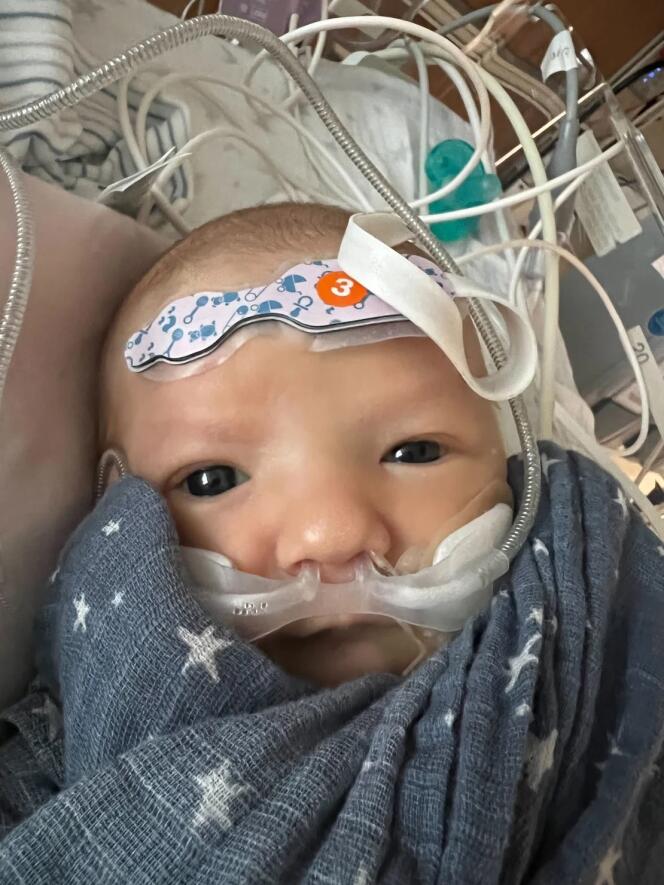


Owen Monroe is doing well, more than 14 months after undergoing a new kind of heart transplant, in which only the part of the heart with the valves that eject blood from the organ is transplanted. That's according to the surgical team's report on Tuesday, January 2, in the medical journal JAMA.
The 18-day-old infant underwent surgery in April 2022 at Duke University's Center for Thoracic and Cardiac Surgery in North Carolina. The two large vessels at the base of the heart did not develop independently from one another, but formed a single arterial trunk complete with a single, defective valve. In addition, the ventricles were connected. Monroe had what is known as truncus arteriosus (common arterial trunk), linked to the single valve's dysfunction. More than half of all children with this rare congenital heart disease die before the age of 6 months.
Instead of transplanting an entire heart from a donor baby to the recipient baby, the surgeons transplanted only the valves that allow blood to be ejected into the aorta and pulmonary artery. The native ventricles remained in place.
Thanks to this world-first procedure, doctors hoped that the transplanted valves would grow along with the child and this is exactly what has happened. "Echocardiographic examinations showed adapted growth of the transplanted valves. No obstruction or insufficiency of the aortic or pulmonary valves was observed," said Joseph Turek and his colleagues at Duke University.
Monroe received the valves from a little girl who only lived for two days. When her heart stopped functioning, the surgeons removed the aortic and pulmonary valves and re-implanted them into Monroe's heart. The operation lasted six and a half hours. The immunosuppressive treatment used corresponded to a quarter of the doses required for a whole-heart transplant.
According to Turek, the innovation paves the way for a so-called "domino" heart transplant. When a whole heart is transplanted into a patient with only damaged ventricles, the heart's healthy valves can be retrieved and transplanted into another patient: "This could potentially double the number of hearts used to benefit children suffering from heart disease." Since the first operation on little Monroe, there have already been other operations of this type.
"To date, 12 other partial heart transplants have been performed at four centers around the world, including nine at Duke University," the pediatric heart surgeon told Le Monde. "Patients underwent surgery shortly after birth and up to the age of 3, sometimes receiving just one valve. Five operations were 'domino' heart transplants, two of which were performed at Duke and two at Columbia University in New York."
You have 10% of this article left to read. The rest is for subscribers only.
